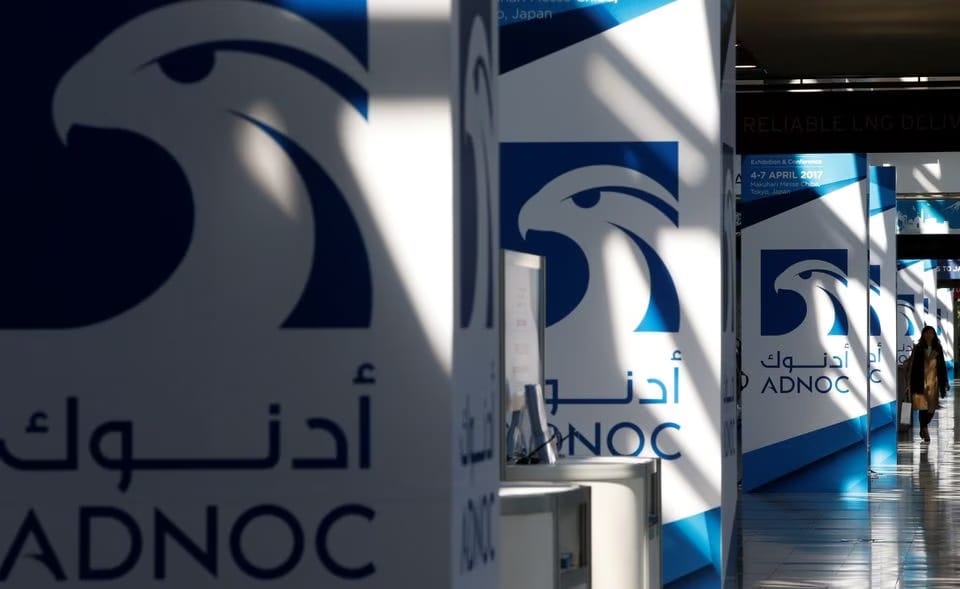ADNOC, Masdar and Microsoft form Alliance to Scale AI in Energy

- ADNOC, Masdar, XRG, and Microsoft have entered a strategic alliance to deploy AI across ADNOC’s value chain and develop energy infrastructure to power Microsoft’s expanding data centers.
- Over 40,000 ADNOC employees have been trained in AI, with usage rates above 90% and productivity gains exceeding 70,000 hours per month.
- The partnership reflects the growing convergence between decarbonization, digitalization, and data-driven energy systems.
Abu Dhabi leads new AI-energy integration push
Abu Dhabi has launched a major cross-sector initiative linking energy and technology at unprecedented scale. ADNOC announced a new alliance with Microsoft, Masdar, and XRG to deploy artificial intelligence throughout its operations and to design energy systems capable of meeting the surging power demand from global data-center growth.
The collaboration was unveiled at the ENACT Majlis in Abu Dhabi ahead of ADIPEC 2025, positioning the UAE at the forefront of the global debate on how AI can accelerate the energy transition while powering the digital economy.
Governance and strategic intent
The partnership brings together the country’s most influential industrial and technology actors under a single agenda. His Excellency Dr. Sultan Ahmed Al Jaber, UAE Minister of Industry and Advanced Technology, ADNOC Managing Director and Group CEO, Chairman of Masdar and Executive Chairman of XRG, described the initiative as “embedding AI into every layer” of operations — and simultaneously building the clean-energy systems required to fuel the AI revolution.
From a governance perspective, the alliance reinforces Abu Dhabi’s integrated energy-technology strategy: combining ADNOC’s industrial capabilities, Masdar’s renewable-energy leadership, and Microsoft’s digital expertise to future-proof national competitiveness.
Scaling infrastructure and AI capacity
ADNOC and Microsoft will co-develop and deploy AI agents to drive autonomous operations, improve process efficiency, and minimise emissions. Microsoft will provide advanced AI tools and large-scale workforce training, while the two companies explore a joint innovation ecosystem for energy applications.
Masdar and XRG will focus on next-generation clean-energy infrastructure to support Microsoft’s global data-center network — one of the fastest-growing sources of electricity demand worldwide. The collaboration builds on earlier ADNOC-Microsoft initiatives, including the “Powering Possible” research programme, which identified AI as a defining force in the energy transition and highlighted both opportunity and risk in its rapid deployment.
Financial details have not been disclosed, but the initiative is expected to channel significant investment into digital infrastructure and low-carbon power capacity. For ADNOC, it represents both an operational efficiency strategy and a diversification play at a time when energy-intensive computing is reshaping global demand patterns.
ESG implications: AI for energy, energy for AI
The dual purpose of the agreement — using AI to decarbonize energy operations, and building energy systems to sustain AI — underscores the complexity of modern transition strategies. ADNOC’s early use of Microsoft Copilot in 2023 made it the first energy major to roll out generative AI company-wide. Since then, over 40,000 employees have undergone AI training, yielding measurable productivity gains.
At the same time, the alliance acknowledges that AI’s growth brings new sustainability challenges. Data-center energy consumption is projected to quadruple by 2040, forcing technology and energy companies to jointly plan for renewable generation, grid resilience, and carbon-management solutions. For investors, the partnership demonstrates how energy and digital players are aligning to manage these interlinked pressures.
RELATED ARTICLE: ADNOC Diversifies into Carbon Management with Strategic Stake in Storegga
Investor and executive takeaways
For energy executives, the message is clear: AI is becoming central to industrial performance, asset optimization, and emissions management. For technology leaders, reliable low-carbon power is now a prerequisite for digital expansion. And for investors, the ADNOC-Masdar-Microsoft alliance illustrates where capital and innovation are converging — at the interface of automation, infrastructure, and climate accountability.
Cybersecurity, data governance, and transparency remain critical hurdles. As AI becomes embedded in energy operations, boards will need assurance that emissions reductions are verifiable and that the power driving data growth is aligned with net-zero pathways.
Global relevance
Although rooted in Abu Dhabi, the partnership carries international weight. It represents a new model for collaboration between state-backed energy companies and global technology firms — one that blends economic diversification with climate strategy. As the world enters an era where energy systems and AI infrastructure evolve together, the UAE is positioning itself as a testing ground for balancing innovation with sustainability.
For policymakers and investors worldwide, the alliance reflects a deeper truth about the energy transition: the next phase of decarbonization will be shaped as much by data and digital intelligence as by carbon and kilowatts.
Follow ESG News on LinkedIn












